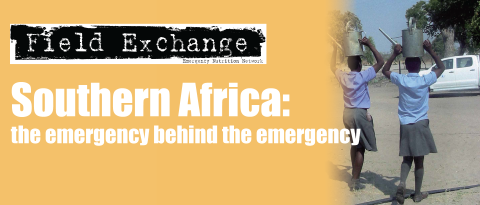Junior Farmer Field Life Schools in Namibia and Swaziland

Entrance sign to one of the JFFL Schools
Thanks to James Breen, FAO Regional Emergency Agronomist in South Africa, for coordinating the production of this field article, John Hourihan, Senior Officer in the Gender and Population Division of FAO, and a Lead Technical Officer for the JFFLS, for his technical input, our partners including FAO, WFP, UNICEF, US Peace Corps and various donors for their ongoing support of this initiative.
Junior Farmer Field and Life Schools (JFFLS) were developed by FAO and partners to improve children's agricultural and life skills for livelihood support and food security. The JFFLS approach is an adaptation of successful practices for developing knowledge and life skills among farmers in difficult circumstances such as Farmer Field Schools and Farmer Life Schools, adapted to local cultures and designed for children. Piloted in Mozambique in 2003, the programme has now expanded to Kenya, Malawi, Namibia, Swaziland, Tanzania, Zambia and Zimbabwe.
At each JFFLS site, specifically trained extension workers, teachers and social animators use a participatory method to pass on agricultural knowledge and life skills to boys and girls between the ages of 12 and 17 years. The oneyear learning programme follows the crop cycle; links are established between agriculture, nutrition, gender equality and life-skills knowledge so that young participants learn to grow healthy crops while making informed decisions for leading healthy lives. Participatory field activities include crop selection and cultivation, land preparation, pest management, cultivation of medicinal plants and income generation; as well as local theatre, art, dance and song.
Strategic partnerships is one of the strengths of this multi-sectoral approach: FAO provides the basic information and tools to undertake sustainable agricultural practices, and provides training on such things as gender roles and equality, the rights of children, and good nutrition; WFP may support children in a school feeding programme and/or through Food for Work (FFW) and Food for Training (FFT), while UNICEF provides technical expertise and learning materials in the areas of life skills and child protection. The United States Peace Corps is an active partner in both Namibia and Zambia, and provides on-site volunteers for periods of up to two years, most of whom are lending technical expertise in agricultural fields and/or life skills training. Non-governmental organisaitons (NGOs), community-based organisations (CBOs) and faith-based organisations also contribute their knowledge, skills and support to JFFLS at the local level1.
Imported from FEX website


